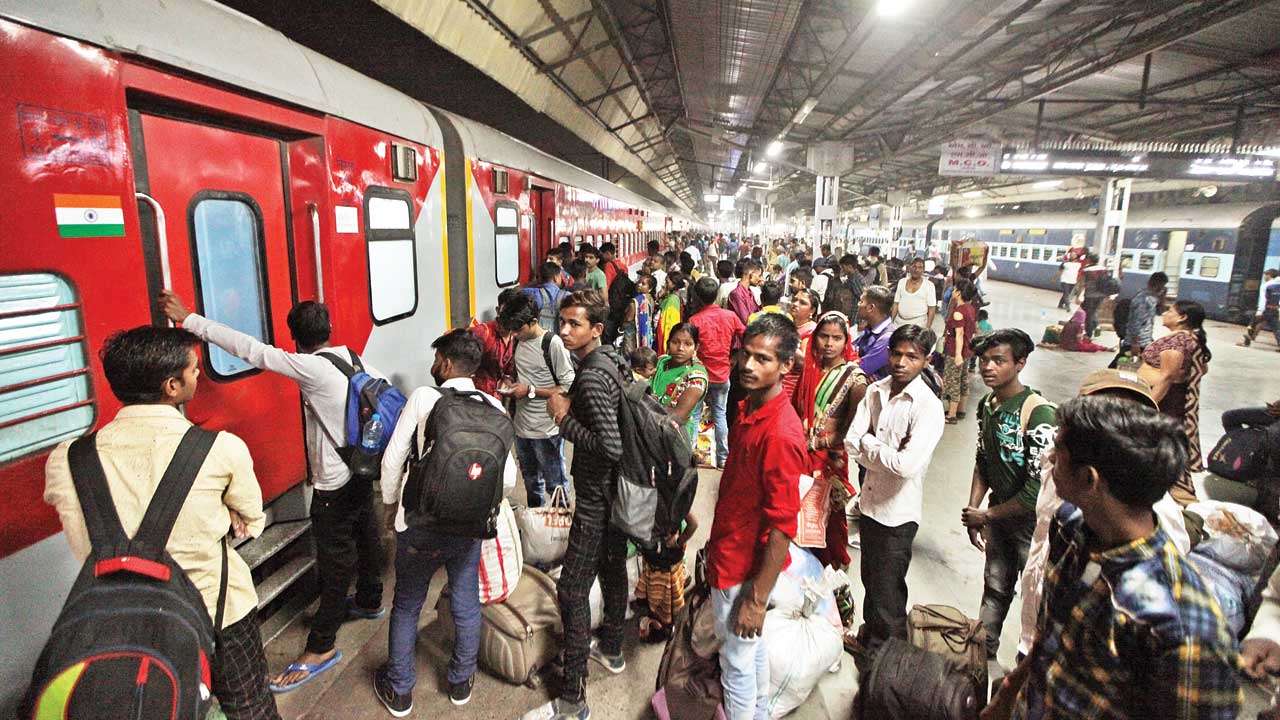
Of the many fault lines inherited by Mother India, regionalism is one of the oldest. By and large it has remained under wraps, but it rears its head every now and then, particularly when the issue of co-existence with migrants comes to the fore. The incidents in Gujarat this week reveal how peaceful co-habitation can quickly turn into a potentially volatile situation, thanks to local politicians and their underlings. The rape of a 14-month-old baby, allegedly by a ‘Purabiya’ (easterner) migrant worker in Sabarkantha last month, is the trigger for the exodus of Bihari and UP labourers mainly from north Gujarat, a state which does not have a past history of such violence.
There is little doubt that given the economic conditions that prevail, opportunities are scarce and fiercely contested. It is the easiest thing in the world to fan discontent against perceived “outsiders”, allegedly out to grab jobs and opportunities from the sons of the soil. That this theory does not hold good in Gujarat is evident from the fact that relatively cheap labour from eastern India are more than welcome there. The president of the Gujarat Chamber of Commerce and Industry has written to the state chief minister seeking protection for migrants working in MSME units. The issue has assumed political dimensions, as can be expected, with general elections next year and the fact that the country’s Prime Minister comes from the state.
The chief ministers of UP and Bihar have talked to their Gujarat counterpart and all of them agreed that order needs to restored immediately. The larger and the more challenging issue is socio-economic. That UP and Bihar are among the country’s most backward states, whose hordes of unskilled labour find opportunities in far off states like Gujarat and Maharashtra, is a given. There is a history of violence against them in Mumbai and at other places, but the point to be noted is that instead of drumming up ‘outsider-insider’ theories, the need of the hour is to provide economic opportunities for the teeming millions, which again is always easier said than done. But, there is really no option except to broaden the economic canvas. It would be instructive to remember that local politicians using such cards for temporary political gains are playing with fire, particularly keeping in view India’s immense diversity.
The 2011 National Census recognises 22 official regional languages in India. It also takes note of 1,635 different languages that this country - bigger than a continent - contains. If vested interests start pitting one linguistic group and 29 states and 7 Union territories against each other, that would deliver a body blow to the very idea of India. It is equally true, however, that cities and urban areas can only take so many migrants. The answer to that is to develop satellite towns and townships, which offer economic opportunities to migrants from backward regions. Clearly, it is easy to whip up emotions, but it can be very difficult to contain them.